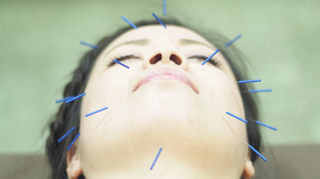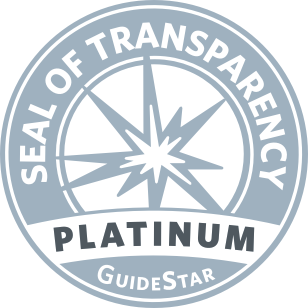Is Acupuncture a Beneficial Treatment for Retinitis Pigmentosa?
Eye On the Cure Research News
Acupuncture definitely has potential benefits, and the breadth of those is being aggressively explored.

We at the Foundation Fighting Blindness have been receiving questions about acupuncture for the treatment of retinitis pigmentosa (RP), namely because of feasibility research conducted by Ava Bittner, O.D., Ph.D., at Johns Hopkins University, in collaboration with Andy Rosenfarb, N.D., L.Ac, who specializes in acupuncture and ophthalmic Chinese medicine. Their project was funded by the National Institutes of Health (NIH).
Cutting to the chase, that study did not provide us with enough information to know if acupuncture can save or restore vision in people with RP.
I will, in a moment, report on what we have learned thus far, as well as on the design of Dr. Bittner's forthcoming acupuncture study, which will hopefully tell us more. But I have one important comment before I discuss the research: I strongly recommend that people affected by RP and other retinal diseases hold off on trying acupuncture therapy for their retinal conditions until more is known about its risks and benefits. While Dr. Rosenfarb has used acupuncture to treat people with RP in his clinical practice, his approach has not yet been formally studied in a randomized, controlled clinical trial.
Furthermore, Dr. Bittner informed us that acupuncture needles, if not properly administered by an acupuncturist trained in specific needling techniques for treating RP, can potentially cause nerve damage, infection and other problems.
So, there are real risks if the therapy is administered by someone who does not have the appropriate skill and expertise, especially given that Dr. Rosenfarb's protocol involves administration around (not in!) the eyes. By all means, do not try this at home.
With that important disclaimer out of the way, let me tell you what we know about acupuncture. First, it is being widely used and studied by the Western medical community, especially for the treatment of chronic pain and discomfort related to a variety of diseases and conditions.
Also, I recently compiled a list of about 60 acupuncture studies that are currently funded by the NIH. So, acupuncture definitely has additional potential benefits, and the breadth of those is being aggressively explored.
Second, we have evidence from a 2006 lab study that electroacupuncture — in which a low-intensity electrical current is passed through needles — might be therapeutic for retinal degenerations. An Italian research team led by Dr. Lucia Pagani showed that electroacupuncture released neurotrophic (i.e., protective) proteins in the retinas of rats with retinal degeneration. While vision in the rats was not measured, treated rats had thicker and healthier retinas than those that were untreated.
Last, we have Dr. Bittner's recently completed 12-person feasibility study of electroacupuncture for people with RP. Results of the research were published in the journal Clinical and Experimental Optometry. In the study, participants received 10 half-hour treatments over a two-week period from Johns Hopkins acupuncturist Jeff Gould, who was trained by Dr. Rosenfarb to administer a standardized protocol designed specifically for the RP trial.
Dr. Bittner reported that eight of those participants had significant vision improvements in night vision, dark adaptation and/or visual field. She followed three of those patients for approximately a year, and their night-vision improvements were sustained. She continues to follow those three individuals to see how their night vision changes over time.
Later this year, Dr. Bittner will launch a one-year, 21-person study of electroacupuncture funded by the National Eye Institute. In this research effort, she and her colleagues will compare a control group to two therapeutic approaches: electroacupuncture and transcorneal stimulation, which involves sending a small electrical current through a wire placed on the surface of the eye.
Transcorneal stimulation has had encouraging results (increases in visual field) in small-scale German clinical trials.
Dr. Bittner and her colleagues will also look at additional parameters of retinal health and vision improvement, including retinal blood flow and retinal sensitivity as measured by an electroretinogram. Even after the small-scale, one-year study is completed, there will still be much that we don't know about acupuncture for retinal degenerations.
If there is a benefit, we still won't know which forms of RP will benefit most and/or if acupuncture will save vision in people with other retinal diseases. Additional research will be needed, but I think Dr. Bittner and her colleagues are on the right track to getting the answers.
Good research takes time. If you are interested in participating in Dr. Bittner's forthcoming study, send her an email at akiser@jhsph.edu. We'll be sure to report any new findings on acupuncture as we learn about them.




